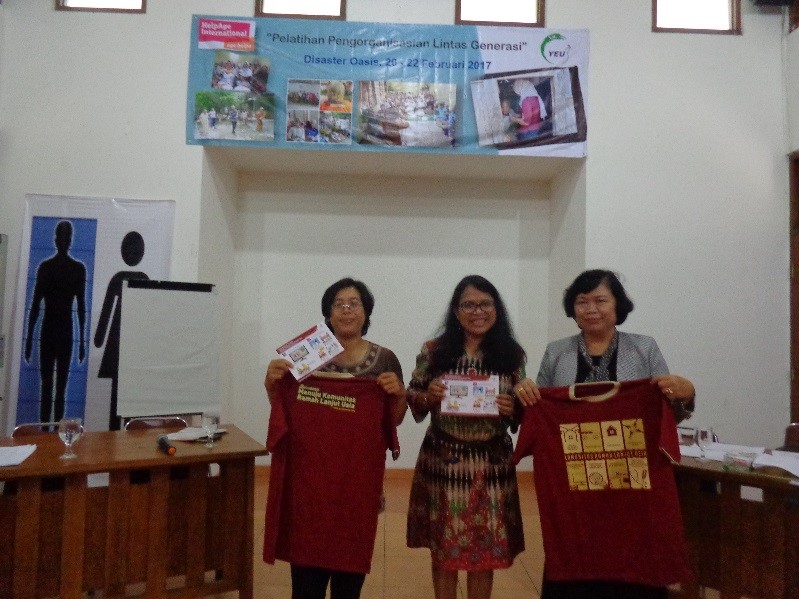Edited by Ramadian Nugrahane
SurveyMETER is a research institute established in 2002. It aims to give policy makers and the general public insight into the factors that influence healthy and sustainable public policy. SurveyMETER also provides accurate and reliable data. In 2013, SurveyMETER’s mission began to transform beyond being strictly a survey and knowledge production institution to being a knowledge-to-policy institute.
SurveyMETER began this transformation after identifying alarming trends related to the growth of Indonesia’s elderly population and their living conditions in the Indonesia Family Life Survey (IFLS) datasets. At the time, the issues of elderly and active elderly people did not receive government attention and they are not yet integrated into government planning. With the Centre for Ageing Studies, University of Indonesia (CAS UI), and with support of core funding, in 2012 SurveyMETER conducted an assessment study in 14 cities to assess their readiness to become age-friendly cities. SurveyMETER used eight indicators adopted from the World Health Organization tool.
The study results were shared with central government (Ministry of Social Services, Ministry of Health, Ministry of Home Land), NGOs, national and local Elderly Commissions, seniors, local government and policy makers in the 14 cities assessed. Successful uptake has been recognised in three cities, Balikpapan, DKI Jakarta and Denpasar, Bali, as reflected in SurveyMETER’s Episode Studies. The institution is committed to continuing its advocacy efforts with policy makers to develop age-friendly cities and assist with integrating priority assessments into the planning and development agenda.
On 12 May 2017 the Ministry of Social Services launched Regulation of Social Services Ministry (Peraturan Menteri Sosial) No. 4 Year 2017. The regulation has guidelines for the development of aging-friendly areas and covers all the dimensions and most of the indicators from the assessment results of SurveyMETER’s study.
SurveyMETER is one policy research institute in Indonesia that pioneers the study of elderly and active elderly living. The organisation has committed to allocating an advocacy division and resources to ensure the assessment findings are integrated into the development agenda and planning by policy makers in Indonesia.






